On 3 August 2015 Fox News released a survey of the political climate in the United States. Conducted from 30 July to 2 August by Anderson Roberts Research (D) and Shaw and Company Research (R) it has a margin of error of +/- 3 percent. (I was immediately struck by the fact that even some reputable survey companies in America are labelled Democrat or Republican.)
Most of the questions in the survey were about the level of support of political candidates. At this stage, as we all know, Donald Trump is leading the polls, although following his debate performance and its aftermath he seems thankfully to have plateaued, as I predicted. The other prediction I made was that Carly Fiorina would shine once Republicans got to know her, and that has happened too. I also said I might even consider voting for her myself, but the more I know … well let’s just say I got that one wrong. She’s a candidate that Republicans should continue to seriously consider, but she’s far too conservative for me. At this stage, if I was forced to vote for a Republican, it’d be John Kasich.
Anyway, as far as what’s important to voter in the United States, the results make interesting reading. For many of the issues, what a person considers important is very different depending on political affiliation and race.
Economy and Jobs
For all groups “The economy and jobs” is the most important issue, although for black voters it’s noticeably more important. This is probably because whenever there is an economic downturn, it is minorities that suffer most. The unemployment rate for African-Americans is always higher than for other Americans, and that is exacerbated when times are tough. According to the US Bureau of Labor Statistics, the overall unemployment rate has dropped from a high of 10% in October 2009 to 5.3% in June 2015. However, the unemployment rate of African-Americans is still 9.5%, while the unemployment rate for white Americans is less than half that at 4.6%. It’s no wonder black Americans consider this by far their most important issue.
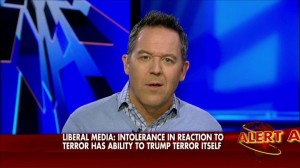
Greg Gutfeld, co-host of ‘The Five’ calling out CNN’s Christiane Amanpour for calling terrorists “activists”. (Source: Fox News)
Terrorism
When is comes to terrorism, Republicans (14%) appear to be a lot more worried than their Democratic (9%) compatriots. In perusing US media, it seems to me there’s a lot more coverage of domestic terrorism in the right-wing media, but I’ve no way of knowing whether my impression is accurate. If it is, that’s likely the explanation for the greater concern of Republicans. The US National Center for PTSD says in a piece entitled The Effects of Media Coverage of Terrorist Attacks on Viewers, “… too much trauma-related television viewing may have a negative impact, especially on children.” Since 9/11, there have been 71 Americans killed via terrorism in the United States. The US Disaster Center reports the total number of murders between 2002 and 2013 was 189,940. It’s clear that people in the United States have a much greater chance of being murdered for a reason other than terrorism, but it’s terrorism that makes it into the list of important issues.
Healthcare
Republicans appear to be a lot less worried about healthcare than the rest of the population. Only 7% of them think it’s an important issue, while 15% of African-Americans (more than 90% of whom vote Democrat) and 16% of Democrats do. Those Republicans who have spent the last several years trying to repeal Obamacare and are declaring that’s what they’ll do as soon as they become president are actually not appealing to many of their voters – most Republicans have got over it. Those who are worried about healthcare are probably concerned they’ll lose coverage if the Republicans win the election. The difference between the parties is possibly an issue of demographics – in the USA the poor and minorities often do not have access to good healthcare, and they are more likely to vote for the Democratic Party. Overall the number without health insurance is down to an all-time low of 12.9% since the introduction of the Affordable Care Act (Obamacare), and it is the poor and minorities who have taken the greatest advantage of its provisions.

In response to Donald Trump’s comments about Mexico, Piñatas Ramirez in Tamaulipas, Mexico started selling Trump piñatas! (Source: Twitter)
Immigration
As with terrorism, the role of the media can be seen in the immigration issue. Republicans (10%) are twice as worried about immigration as Democrats (5%), and more than three times as worried as African-American (3%) voters. Donald Trump’s rhetoric in particular has received a lot of attention. His ridiculous statement that he’s going to build a wall on the Mexican border and make Mexico pay for it, without any plan on how he’s going to do it, nevertheless has a portion of the Republican party very excited. He’s also accused the Mexican government of deliberately sending their rapists and murderers to America, which rather too many people seem to think is true. The fact that immigrants, legal or otherwise, actually commit less crime than other Americans is something that you’d be hard-pressed to get some on the far-right to believe even if you showed them the statistics. He’s tried to walk some of his comments back a little since, insisting he loves Mexicans, he has a lot working for him, and he’ll win the Hispanic vote. To me this simply exposes an arrogant, patronizing attitude.
Foreign Policy
Foreign policy is another area where there are significant differences between Democrats and Republicans – Republicans (9%) think the issue is more than twice as important as Democrats (4%) and nine times more important that African-American (1%) voters. This goes back to the fact that Republicans think President Obama is mishandling foreign policy and having a negative effect on the country’s reputation. They consider he’s made the USA appear weak, and isn’t aggressive enough, especially in relation to Putin and the Middle East.
It’s debatable how accurate the Republican assessment of Obama’s foreign policy is – there’s no doubt it’s problematic is some areas. However, I haven’t heard any better ideas from any of the Republican candidates and in fact the pronouncements of most of them show they have a limited understanding of foreign affairs. Ben Carson thinks it’s a good idea to stop all foreign aid because, “we can’t afford it,” and several other GOP candidates have voiced similar opinions. They’d soon find out the value of foreign aid if they stopped it, and how much it saves in the long-term. The goodwill it buys, especially with those governments that might otherwise get closer to Russia or China, is invaluable. Also, things like improving conditions in other countries so less people will be tempted to try and enter the USA illegally, and long-term, create more stable democracies around the world makes things better for everybody.
Climate Change
Climate change demonstrates the most significant difference between the parties’ supporters. Only 1% of Republicans versus 8% of Democrats think this is an important issue. Candidates in the Republican presidential primary who accept that climate change is real, like Lindsay Graham, face an uphill battle in the contest. Obama’s latest policy announcement on the topic was immediately declared illegal by Republicans, and efforts to block it started straight away.
As can be seen from the graphic to the right, the difference between whether members of the public accept that anthropogenic climate change is real shows a strict partisan divide in the United States. Only 37% of Republicans accept the science, with even less recognizing it’s a threat to their country. A vast majority of Democrats (79%) on the other hand both accept the science and recognize it’s a major threat. This level of denial among Republican Americans is concerning. In the same survey, we see that 37% of Americans do not think that scientists generally agree that climate change in man made, although in fact 87% of scientists in the survey generally agreed it was man made.
Race Relations
Another area where there’s a wide range of opinions about the importance of an issue is race relations. Black Americans (11%) think the issue is more than twice as important as the population as a whole (5%) and more than five times as important as Republicans (2%). Democrats come in at 8% on the issue. As an outsider, I see a huge amount of denial in the United States about whether racism even exists, especially when I watch Fox News. One of the most common comments goes something like, “How can you say there’s racism here – we’ve got a black president?” Whenever there’s an incident of urban unrest in poor black neighbourhoods, the commentators always come out blaming things like the breakdown in black families and a culture of violence. An article I read recently in Salon by Chauncey Devega, White America’s racial amnesia: The sobering truth about our country’s “race riots”, could do with being read widely and absorbed by the right-wing media. The fact that black communities always assume that the death of a black suspect at the hands of a white police officer was unwarranted, and continue to think that even when it’s proven unequivocally that the police officer did nothing wrong (such as in Ferguson), says to me there’s a systemic problem that needs to be dealt with.
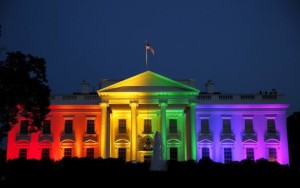
The Whitehouse was lit with rainbow coloured lights to celebrate the SCOTUS decision that same-sex couples had the constitutional right to marry.
Same-Sex Marriage and Abortion
Social issues like same-sex marriage and abortion are much higher on the Republican agenda (4% and 3% respectively) than the Democratic one (1% each). Almost all those in the GOP presidential primary have come out in opposition to same-sex marriage, while all the Democratic candidates are in support of it. I understand that some people are opposed to same-sex marriage for religious reasons, although personally whatever their reason, I consider their opposition bigotry, as I wrote here. What I don’t understand is that some people are so concerned about the private lives of other people that opposing it is so important that it effects who they vote for.
It’s a different story for same-sex couples who wish to marry and previously couldn’t – for them it’s obviously a genuinely important issue. Interestingly, opposition to same-sex marriage is much more important to black voters (6%) than anyone else. Traditionally, there’s a strong evangelical Christian element in the black community that’s strongly opposed to same-sex marriage. When the issue came up on the ballot in liberal California, it was black voters that defeated the proposition.
Taxes
Despite the constant mantra from politicians about the tax code, there doesn’t actually seem to be that much interest in it from voters, whatever their politics. Only 2% of Republicans and 3% of Democrats consider this a major issue. I would suggest either they’re fairly satisfied with the status quo, or they don’t really think anything will change whoever gets elected. Several of the Republican candidates are promoting the idea of a flat tax, insisting it’s much fairer. The non-partisan Congressional Budget Office confirms that a flat tax would significantly raise the taxes on the poor and middle-class and lower them on the rich. When faced with that fact on Fox News Sunday this week, candidate Ben Carson continued to insist that a flat tax would increase opportunities for the poor, displaying his weak grasp of economic fundamentals. Like many in the GOP he still believes that trickle-down economics is valid. To his credit though, he does support a raise in the minimum wage.
Federal Deficit
There’s an issue that many voters seem to be pretty concerned about (5% of Democrats and 8% of Republicans) that I haven’t addressed and that’s the federal deficit. This is a complicated issue, and it needs a post on its own to deal with it. Suffice to say, the current US deficit is not as serious as many think it is because the underlying fundamentals of the economy are good. If the US had the fundamentals of Greece, then yes, there’d be a problem. What I will say is this: any politician who proposes a Constitutional amendment for a balanced budget should be kept well away from economic policy – he or she obviously doesn’t understand the subject. Government spending, business spending, and personal spending cannot and should not have the same tests applied to them.
In the unlikely event you’ve made it to the end of this fairly boring post, I give you this as a thank you:

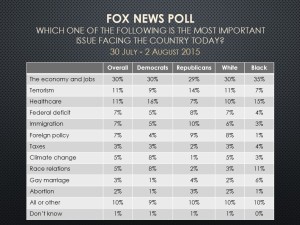
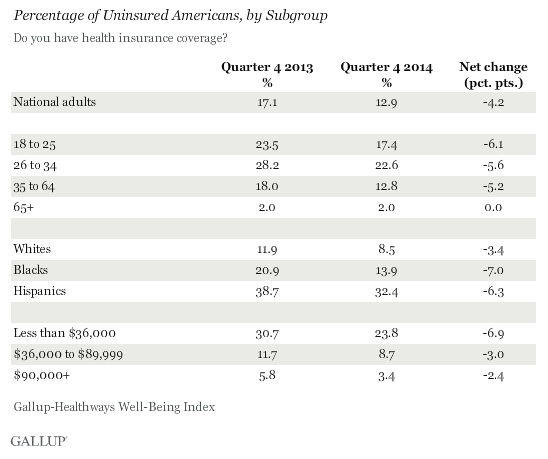
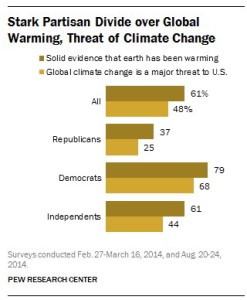
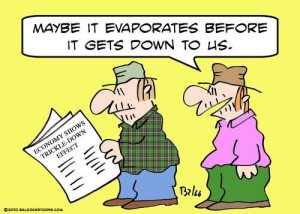
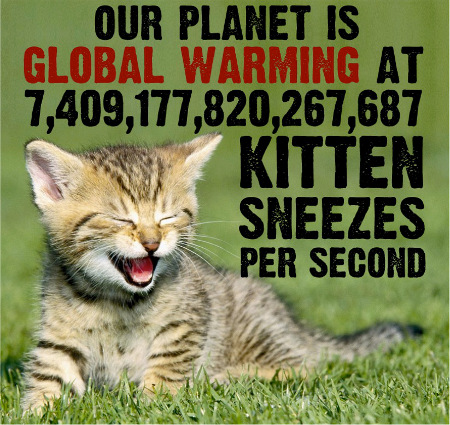
It truly astonishing how the two parties differ on global warming. The impact of money in the nations discourse is evident here, as well as religion and income inequality. The denialists in congress are, of course, on the payroll of the Oil and Coal industries. The population in the south and west are heavily influenced by religious fundamentalism which claims that only God can change the climate, not man and his machines. The poorer segment of society are often deniers because they are suspicious of any initiatives of the government. And there’s Fox “News”. Meanwhile, Rome burns.
The so-called ‘War on Coal’ is not real either. Coal is an international commodity, the current price of which is a quarter of what it was only four years ago. The international community doesn’t want to buy it, because they recognize the damage it does to the environment. China used to be building a couple of coal-fired electricity stations a week. Now they’re going nuclear. Japan shut down all its nuclear reactors after the tsunami, but they’ve started to open them up again.
To me it seems obvious that the Republican resistance to accepting the science of climate change is based on the sort of things you mention – it amazes me so many millions can’t see that. It has to be influenced by things like the media and religiosity, or the denial just wouldn’t stick.
It is absolutely nonsensical to suggest that religion is the driving factor behind why many Southerners deny climate change. In all debates I have had on climate change with Americans from the South, I have yet to come across one whose reasoning was driven by religion.
In my experience it tends to come down to two things:
1) The economy in places like Texas depends heavily on fossil fuels, and so reducing the use of fossil fuels isn’t something that is good for them.
2) Mistrust of “institutions”.
Whilst I have argued strongly that climate change is happening, it is quite possible that we are overestimating the effect that humans have had on it, and so this notion that other environmentalists parrot that anyone who disagrees with the impact of humans on climate change is in some way “unscientific” is complete and utter nonsense.
Personally, when I am arguing for climate change, I am not arguing because I believe the science is “accurate” because we might be overestimating the effect we are having, I am instead arguing because the risk is simply not worth taking – even if the scientific opinion was that fossil fuels are probably not having an effect on climate change, it still isn’t worth the risk and we should be looking for more renewable forms of energy.
I think you are right that the economy and mistrust are significant factors. What I am referring to is the position stated by many southern politicians that God controls our lives and the climate and the bible says he would not allow AGW to occur. Now, this is a flimsy rational and maybe it’s just an expedient for other motives, but that is in the media.
As for the idea that humans are not causing global warming, that just flies in the face of the research. The probability, although not 100%, is very high. Those other reasons for supporting alternative energy are valid, but not central to the issue.
The media always likes to sensationalise things – there isn’t anything in Christian doctrine that suggests Christians should just sit back and let damage to the earth happen because if God isn’t stopping it then it was meant to be.
I never said humans are not causing global warming. I said there is huge uncertainty about the extent to which humans are responsible for global warming. For example, the temperature has risen by 1C in the last century – how much of this is due to humans? The answer is, we simply do not know, to suggest that “the probability, although not 100%, is very high” that the majority of this change was due to humans is simply not true – it is very plausible that 0.5C was due to humans and 0.5C occurred naturally.
This is actally why many climate change deniers are deniers – they see people taking “reasonably likely” and changing it to “almost certainly true”, and they then start feeling as if people are trying to mislead them and con them and so they take the opposite extreme view that climate change is all a hoax.
Where did you read that there was huge uncertainty about AGW? Evidence please.
This is not correct. For one thing, the amount of CO2 and other greenhouse gases has been relatively stable for many thousands of years. Thus we can anticipate that without human influences, natural sources of heating will not cause the very rapid rise in CO2 and temperature we see today. We know this from ice core measurements which show the composition in the atmosphere going back as long as the glaciers in Greenland have been building up. Also, the amount of new CO2 that has been generated by industrialization over the last 150 years is known. It is also well understood how much increases in CO2 affect global temperature due to greenhouse warming. From this it can be calculated that the additional CO2 from burning fossil fuel is the amount needed to raise the temperature to the levels we see today. There isn’t much room for any other source of heating.
Other potential sources of heating, such as variability in the sun’s output, gasses emitted from volcanoes, variability of ocean cycles. These have all been looked at. The thing is, none of them would cause all the effects we can measure today such as the cooling in the upper atmosphere and changes in daily and annual cycles. This rules them out as significant causes of global warming.
So, to say that “we simply do not know” is incorrect. There are many avenues of evidence leading to the same conclusion – that man made global warming is real and it is by far the most significant contributor. CO2 from burning fossil fuels is the culprit.
To claim that “it is very plausible that 0.5C was due to humans and 0.5C occurred naturally”, would require evidence to support it. But all the evidence points away from that view.
Undoubtedly there are many reasons AGW deniers hold their views. Some are confused by the reports which seem to say different things. But, it is a complex scientific subject. It really takes some time and study to learn about the science and be convinced. The bigger problem, it seems to me, is that there are politicians and other leaders, (such as fundamentalist Christian ministers) who lead people astray. They sow the seeds of confusion by sighting minor differences among climate scientists as if it defied the general consensus that has been building since the 1940s. There is no serious disagreement among climate scientists about the overall facts of the situation.
The main uncertainty has to do with exactly how rapidly changes will take place. Where will we be in 50 years or 100 years from now. For example will sea levels rise 5 meters or 10 over that time? In spite of that, the effects are already being felt around the world, and the changes are happening faster than predicted just a few years ago.
1) I did not say there is huge uncertainty regarding AGW. I said there is huge uncertainty regarding exactly how much of the rise in temperature is attributable to humans.
2) Just look at the measurements themselves – “Earth’s average surface temperature rose by 0.74 ± 0.18 °C” … so first of well, the rise in temperature might have been 0.56C or it might have been 0.92C. So, yes, there is actually huge uncertainty about how much the temperature has actually risen by, let alone how much of it has risen due to AGW.
3) You’re going to say 97% of scientists agree that AGW is happening. It still doesn’t mean that 97% of scientists agree that almost all of the change in temperature is attributable to humans.
4) Even if 97% of the scientists, after using models, stated that the majority of temperarture rise was due to humans, it still doesn’t mean this is necessarily true. Modelling what causes temperature rise is a very very complex task, there are a lot of unknowns, and it is very possible that there are natural factors too which are playing a reasonable part in climate change that the current models are simply not capturing. To suggest otherwise is very “unscientific”.
5) We all know that smoking cigarettes can cause heart disease. Say some guy comes to the doctor, and his arteries are clogged. Does it mean that we should say “he smokes, smoking causes arteries to clog, therefore his aretries are clogged because he smokes and that’s the only reason”? No. His arteries might partially be clogged because of his smoking, however, there might be other factors too which are causing his arteries to clog – poor diet, lack of exercise, genetic disposition. The same applies to AGW, we know that our emissions will cause the temperature to rise, however, there might well be other natural reasons too which are playing a significant part in the rise of temperature – to suggest there isn’t, is nonsensical.
6) You still haven’t shown that Christians are happy to deny climate change because God would not allow the climate to change. I mean, sure, the Christian Right is involved in climate change denial
http://www.alternet.org/environment/how-religious-right-fueling-climate-change-denial
But I still see no proof of the claim that Christians are happy to deny climate change because God would not allow the climate to change. So please provide me eivdence that this happens often.
We know that ambient CO2 levels have increased from 280 ppm to over 400 ppm in the past 200 years. We have good historical data over hundreds of thousands to millions of years showing a very high correlation between CO2 levels and global temperature. Yes, there is a great deal of natural variation in weather, and we are right to be skeptical in attributing particular storms or even five year droughts to human activities. But glaciers have been melting all over the world for 50 years and more, arctic ice cover is decreasing and the Greenland and Antarctic ice packs are melting at increasing rates. Even if we can’t determine the precise contribution of human activities to any recorded temperature rise there is virtual unanimity among climate scientists that temperatures and sea levels are rising and will continue to rise due to human activities, and the more carbon we put into the atmosphere the greater these effects will be. The details, the timing, and the costs are still uncertain. I think some people exaggerate the danger. Many species will die, but anthropogenic climate change will certainly not threaten life on earth, nor will it threaten human existence, unless the stresses lead us to kill ourselves via a nuclear holocaust. But seems likely sooner or later regardless of climate change. Some say that we’re it not for the greenhouse gas increase we would be heading into another ice age. Se say that fossil fuels will run out before the worst effects of climate change are realized. The end of fossil fuelsay be a greater shock to the system than Climate change. In either case we should reduce our dependence on fossil fuels asap. Those who believe end times are near do not see either climate change or the exhaustion of fossil fuels as a problem.
Your analysis sounds pretty good but I have to comment on your last bit.
“Some say that we’re it not for the greenhouse gas increase we would be heading into another ice age.”
Are you suggesting that global warming is really a good thing because without it we would be worse off? I’ve been following the issue for a long time now and I haven’t heard a new ice age mentioned by any climate scientists. Who are the some that say that? If you’re referring to some bozo on Fox news, you should probably ignore it.
“They say that fossil fuels will run out before the worst effects of climate change are realized.”
At the rate we are burning carbon we will run out of fossil fuel by 2088. That’s about one human lifetime. And if that happens, the amount of CO2 discharged will be enormous. And indeed, due to latency in the atmosphere and oceans, the worse effects will probably happen beyond that date. But I have trouble conceiving of that happening. The effect would be predictable and catastrophic. In order to avoid major ecological disruptions we will have to leave most of that fossil fuel in the ground – thus the urgency in adopting alternative sources.
Here are a couple of links to evangelical global warming denial.
The first link discusses religious environmental denial and some suspected causes.
The second link documents a PEW poll that shows evangelicals are the most strongly in denial.
http://goo.gl/WtgFsR
http://www.theguardian.com/environment/blog/2009/apr/17/climate-change-religion
In addition, I have seen video of evangelical ministers talking about there denial. Perhaps you could spend a few minutes and search Youtube for them.
@paxton, good post.
@rick, but you have STILL not shown Christians who are climate change deniers because they believe God will not let the earth warm. You have shown that Evangelical Christians are more likely to be deniers, but this is because Evangelical Christian tend to be right-wing Conservatives, and right-wing Conservatives are climate change deniers, this isn’t because of religion.
“Many Christian fundamentalists feel that concern for the future of our planet is irrelevant, because it has no future. They believe we are living in the End Time,…”
“A 2002 Time/CNN poll found that 59 percent of Americans believe that the prophecies found in the Book of Revelation are going to come true. Nearly one-quarter think the Bible predicted the 9/11 attacks.”
“their votes are heavily swayed by an electoral base that accepts the Bible as literal truth and eagerly awaits the looming Apocalypse. And that, in turn, is sobering news for those who hope for the protection of the earth, not its destruction.”
“Today, most of the roughly 50 million right-wing fundamentalist Christians in the United States believe in some form of End-Time theology.”
OK, you get the idea:
http://grist.org/article/scherer-christian/
rickflick, I included the last two observations in my last comment to illustrate that although we know humans are causing climate change, there is still great uncertainty as to the ultimate impacts.
My source for the comment about the overdue ice age is environmental scientist and climate historian William Ruddiman. Wikipedia has a good synopsis of his views. Among other things he claims the anthropogenic climate change has been happening since the origins of agriculture 10,000 years ago, and that based on historic trends and solar cycles, we are overdue for another ice age. He’s not, nor am I, claiming that we “would be worse off” without human carbon emissions, but only to point out the complexities of earths climate, and the uncertainties of anthropogenic effects.
The second claim, that fossil fuels will run out before the worst effects of climate change are realized” I heard from a Cal Tech professor who did an extensive mathematical analysis of estimates of recoverable fossil fuels. I didn’t find his argument convincing, but he is a reputable scholar. I can’t remember his name right now, but could probably find it if you are interested.
I spent most of my career as an energy systems engineer, including research on increasing the efficiency and lowering the cost of photovoltaics, and I agree with you on the urgency in adopting alternative sources. However, energy efficiency and conservation are also essential, and currently provide the most bang for the buck in many cases. A global carbon tax is urgently needed to level the playing field for alternative sources, but seems to be politically impossible at present. When there is no cost to pollution, it will not be mitigated.
Paxton,
I agree there is uncertainty about the impacts of GW. There are many variables when you are talking about weather and climate over 100 years. But it’s pretty certain that the results will be ugly. Many of the anomalous events we’ve seen in just the past decades are pretty frightening – for example, the heat and drought and fires in the U.S. West. The longer term outlook is far worse.
The uncertainty we are talking about is not about conditions will be neutral or somewhat worse, it’s really about just how severe the suffering will be.
Ruddiman is certainly a qualified scientist so his views should be taken seriously. And, they are fascinating ideas. My feeling is though that he is an outlier. The vast majority of climatologists disagree. But, his story does show us that there is uncertainty in some of the details and possible different ways of looking at the problem. I’d have to believe his views on fizzled out ice age is pretty much irrelevant to all the evidence around AGW. Even if true, it doesn’t help in facing the current situation.
I couldn’t agree more on the importance of conservation and a global carbon tax. I kind of like James Hansen’s idea of returning the tax directly to the public. This would remove most of the economic disincentive that are inherent in other approaches.
Rick, you are changing what you are saying.
You had said that many Christians believe that AGW isn’t happening, because God won’t allow it to. I asked you for proof. You have provided none. Instead, you have shown that some Christians believe in the End Times and looming disaster. The two things are the complete opposite, because the End Times state that there will be disaster on Earth i.e. if anything, the End Times are actually SUPPORTIVE of climate change.
And just because someone believes in the End Times, it doesn’t mean they believe we shouldn’t look after the planet.
So I will ask you again – please provide evidence that Christians believe that God would not let AGW to occur.
Thank you.
http://www.rightwingwatch.org/content/james-inhofe-says-bible-refutes-climate-change
Thanks Rick, you finally provided a link.
However, you had written:
One lunatic doesn’t make many. As you talked of “many”, I assume you have evidence of “many” making such a claim.
On a side note, if you read that article, it also mentions:
Personally, I think there are probably very few Christians who don’t believe in AGW because God won’t allow it, but people are happy to portray it this way because of their anti-religion bigotry.
When you whack that Trump piñata does candy or crap fall out?
🙂
Interesting that Fox does not include the two issues that are most important to me and many liberals: Inequality of wealth and income, and War. Also note that respondents could only choose one response. It might have been more revealing if they chose three in rank order.
I agree, and there was another one I thought should he in there too, and was reminded of when I was looking up the murder statistics: gun control.
To me it looks like there’s a huge amount of racism in the US, and that bleeds (literally) into the gun control debate. It struck me in particular again recently when I was listening to someone on Fox talking about the shooting at the anniversary march in Ferguson – he said, “What was a peaceful protester doing carrying a gun anyway?” I felt that if this was a white guy they’d be going on about his right to carry a gun whenever and wherever he wanted to.
I agree that a ranking system would have been better too. I don’t think most people are single issue voters, they take the best that they can get over a range of issues. It’s rare to find a candidate that you agree with completely.
This link is to a tweet of an interesting map just released by Standard and Poors about Climate Change: https://twitter.com/AdilNajam/status/634057265398480896
IMO American evangelical Christianity has little to do with the teachings of Christ. It’s a combination of resentment, racism, and paranoia. Southern Christians are still fighting the Civil war. Integration, civil rights for blacks and gays, abortion, secularism in education, evolution, are all part of a war on Christianity. Climate change is associated with the same hated northern liberals and with the much despised Obama. The big money corporate Republicans play on these resentments to get the evangelicals to vote against their economic interests. The Koch brothers are fossil fuel magnates who lead and symbolize the climate change deniers. Consequently the evangelicals have embraced a libertarianism based on the myth of free enterprise capitalism that is the opposite of the sharing, communal teachings of Jesus. They are Xenophobic, particularly hostile at the moment to Hispanics and Muslims. As Heather’s map indicates, carbon mitigation is a particularly hard sell for them because they see themselves as bearing the cost, while the benefits go to despised foreigners. Is this opposition due to “Christian doctrine”? Yes and no. It’s not the doctrines taught by Christ, but it is the doctrine promulgated in thousands of evangelical churches.